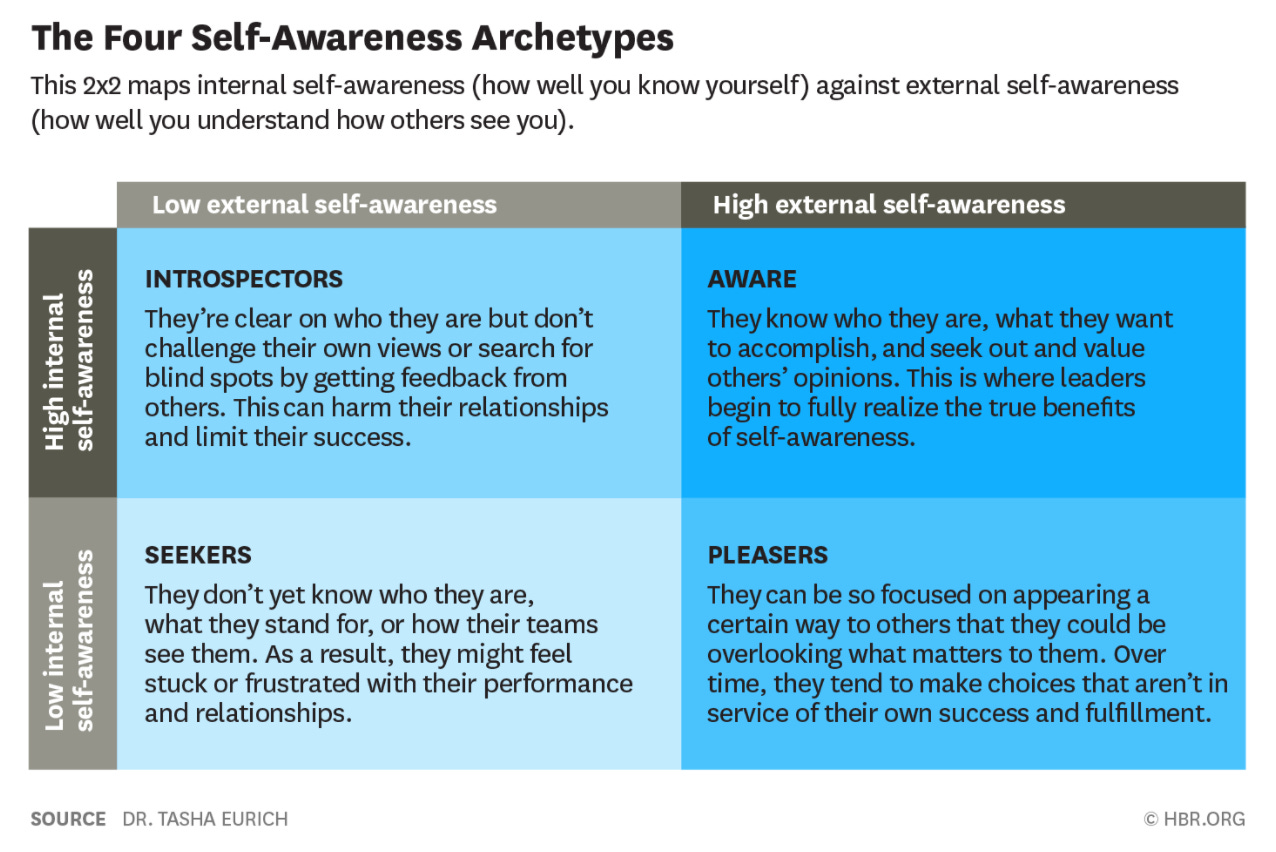Self-Awareness
“I think you have to be Self-Aware to improve”– Steve Kerr
Self-Awareness is considered a foundational skill in the field of sport psychology. The late Ken Ravizza, a giant in sport psychology, viewed self-awareness as a necessary precondition for utilization of most sport psychology methods and techniques. In other words, we can’t change what we’re doing if we don’t know what we’re doing.
In this week’s 3 Points, I’ll be introduce Self-Awareness, why it matters and how you can try it out!
1. So, what exactly is self-awareness? I particularly like organizational psychologist and self-awareness expert Dr. Tasha Eurich’s definition, which breaks self-awareness down to two parts:
Internal self-awareness is essentially how well we know ourselves; how clearly we see our own values, passions, aspirations, fit with our environment, reactions (including thoughts, feelings, behaviors, strengths, and weaknesses), and impact on others.
External self-awareness is essentially how well we understand how others see us; understanding how other people view us, in terms of those same factors listed above.
2. While research on self-awareness and coaching is coming along, there is a great body of research on self-awareness in corporate leadership which we will lean on. Research suggests that when we see ourselves clearly, we are more confident, more creative, we make sounder decisions, build stronger relationships, and communicate more effectively. Further, we’re more-effective leaders with more-satisfied employees and self-awareness was positively associated with greater job-related well-being. Woah.
There has been some research conducted on coaching, particularly at the youth level that has some relevant findings as well. Studies found that coach’s self-awareness is a central competence in establishing a high-quality working-alliance. Further, when coaches raise their self-awareness, we can expect coaches to be more intentional and deliberate in fostering developmental goals.
3. Try it out:
Seek feedback from those around you.
Try journaling/reflecting after games:
Were you focused/distracted? How was your demeanor on the sideline? Were you stressed? How was your self-talk? What can you do better next time?
Focus on “What” instead of “Why”! Instead of asking “Why did I get so distracted and frustrated this game?” Try “What situations during the game distracted and frustrated me?” this leads to more solutions and less unproductive ruminating on the past.
Watch the film. Do you film practice and/or games? Watch yourself, your body language, watch who you interact with and how you interact with them.
As always, please reach out with any thoughts/questions or interest in learning more about the research mentioned. I’ll see you in your inbox in the new year!


